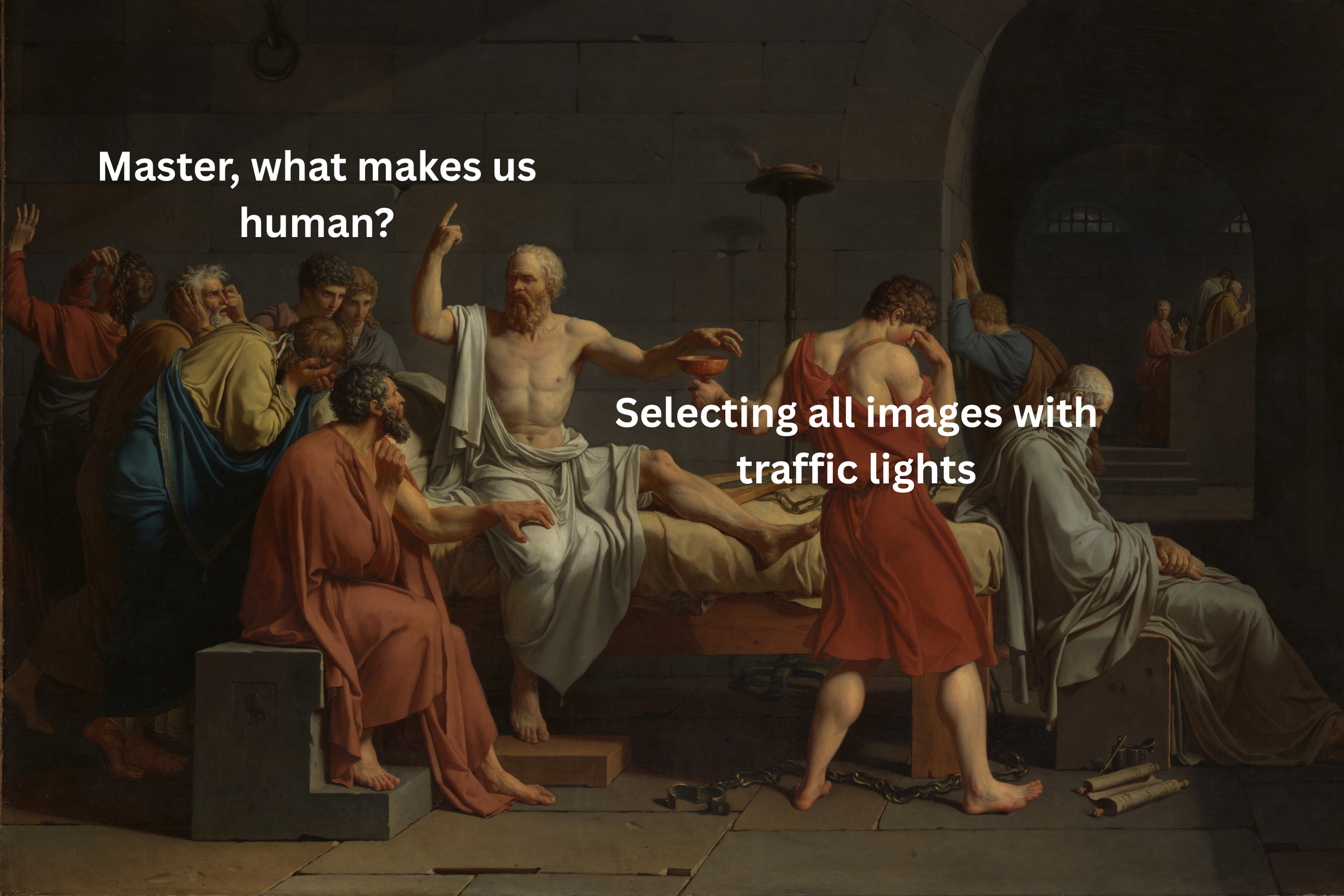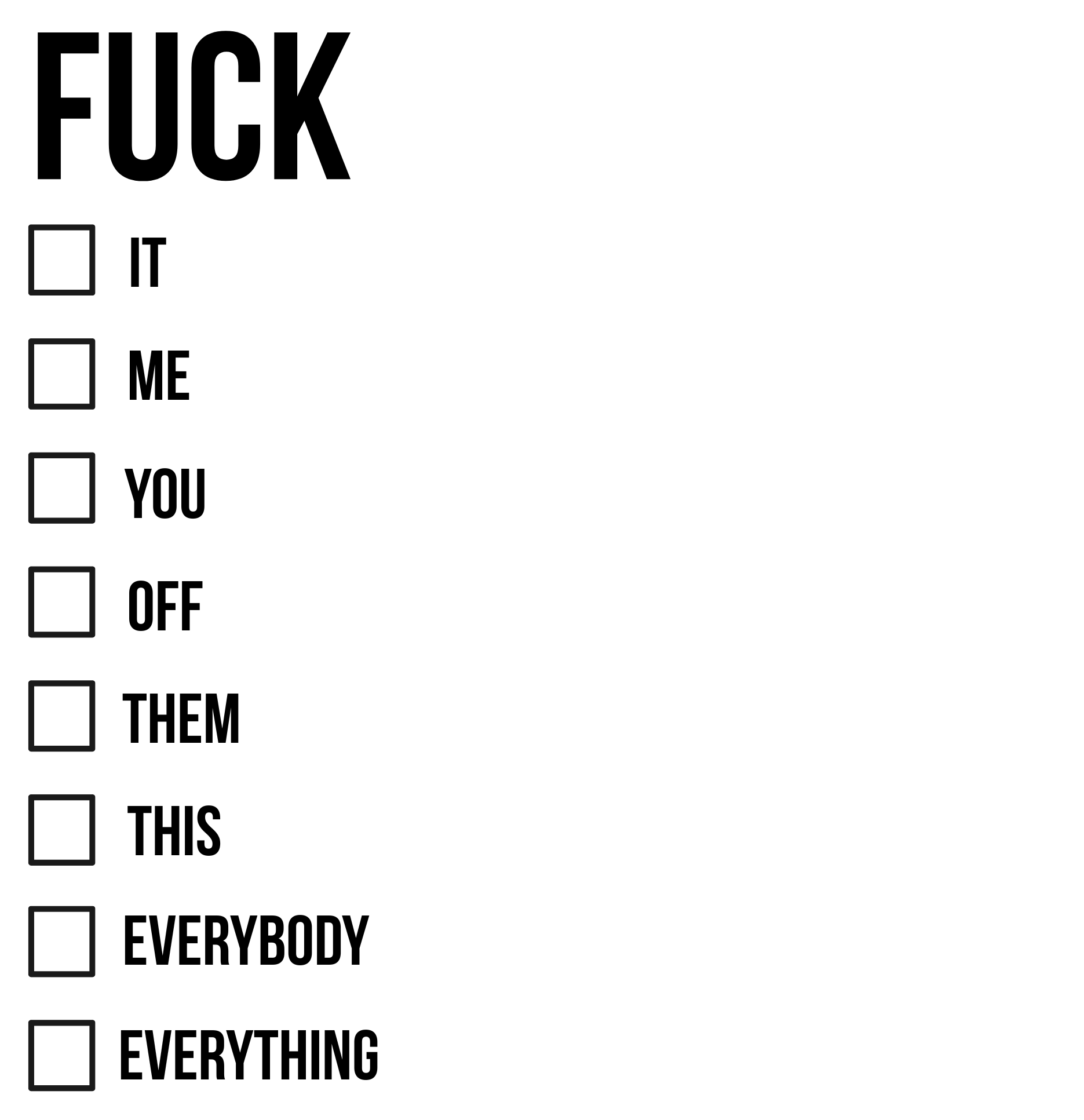
Why Can't We Understand The Meaning Behind Language?
-

The Book Lady Bookshop
Savannah, Georgia
Why Do We Use Language To Obscure & Deflect From Meaningful Communication?
Collection: The Beat Philosopher
Cross-Collection: The Subjective Psychology Project
Format: Philosophy Discussion
Length: 1,000 Words | 4 Min
Author: Melissa Nadia Viviana
Date: Dec 22, 2024
Tags: Language, Pedantic People, Meaning, Communication
§
The Beat Philosopher is a reader-supported publication by Melissa Nadia Viviana; Author, Activist, Existentialist, & Philosopher.
To receive new essays exploring the current problems of our world through a philosophical lens consider becoming a free or paid member.
Philosophy Discussion Week 6: Language & The Meaning Of Words
I’ve last-minute changed my mind on what the Philosophical topic will be about this week, partially because I’m still sleep deprived from my new puppy, Freyja. (I have a big cup of coffee here with me).
I went to a local used book store this week after everybody on Bluesky guilted the collective that the holidays were when small bookstores make the most money throughout the year.
I went to seek out the tiny one-shelf philosophy section of my local bookstore: The Book Lady (in Savannah, GA).
They had a copy of Henry David Thoreau’s Walden & Civil Disobedience (which I thought was relevant to today). And a copy of Hannah Arendt’s Men In Dark Times. Also relevant.
And a copy of Ludwig Wittgenstein’s Major Works: Tractatus Logico-Philosophicus; The Blue Book; The Brown Book; and On Certainty.
Which almost simultaneously is always relevant and never particularly relevant on a given day.
What is, perhaps, interesting & relevant is that Wittgenstein wrote Tractatus Logico-Philosophicus in a Prisoner of War Camp in Italy in 1918.
Which reminds me that in 1940, Jean-Paul Sartre also spent time in a Prisoner of War Camp when he was captured by German troops. And it was there, that he wrote the draft for Being And Nothingness.
I didn’t think German troops would be so generous as to supply THAT much paper to a prisoner, but I guess they felt sorry for him for his philosophic vice of having the inability to edit anything. (And I’ve been there).
-

Ludwig Wittgenstein (1929)
-

Jean-Paul Sartre (Circa 1935)
So why is Wittgenstein particularly relevant to me this week?
In The Blue Book, Wittgenstein writes:
“What is the meaning of a word? Let us attack this question by asking, first, what is one explanation of the meaning of a word; what does the explanation of a word look like?
…
Asking first “What’s an explanation of meaning?” Has two advantages. You in a sense bring the question “What is meaning?” down to earth.
For surely, to understand the meaning of “meaning” you ought also to understand the meaning of “explanation of meaning.”
Roughly: “let’s ask what the explanation of meaning is, for whatever that explains will be the meaning.”
He goes on to describe that meaning can roughly be divided into two categories: verbal and ostensive (a word that, in itself, has a weird meaning… so we’re off to a bad start).
But he probably meant something that has a physical presence we can point to, versus merely a verbal definition.
But finding Wittgenstein this week overlaps with a much deeper psychological phenomenon I’ve encountered throughout my time hosting philosophy discussions.
Over the years, I’ve come across a type of personality who focuses on tedious semantics and narrow definitions of words in order to distract from their meaning.
Let me just say that again: a person who focuses on the definitions of words (or the exclusively defined use of a word) in order to avoid looking at its actual meaning.
Meaning is different than definition. Because regardless of which word choice someone uses… their context actually gives that word new meaning.
Jam, for example.
“I want a jam sandwich.”
“My keychain is jammed in the car door.”
“This is my jam” (music)
But we go along with this crazy use of language in multiple contexts because we recognize that words don’t actually have narrow definitions, exclusively. They might have agreed-upon uses of meaning, but they also have a life of their own as they interact in different contexts.
Slang is entirely the practice of taking old words or made-up words and using them over and over in a new context, until people grasp the concept.
“Bet” for example. (slang that young people use, but I actually don’t know what it means).
And yet, even here in my own philosophy discussions, there are people who participate in rational conversations entirely in bad faith.
In the sense that they participate by refusing to acknowledge your meaning—to understand anything about anything—unless you use the perfect word choice.
They simply play dumb and won’t acknowledge your context.
When I used to host philosophy discussions on Twitter, I would entertain these people. But because I entertained them, they continued to come back and I would get wrapped up in crazy conversations in which people would almost purposefully misunderstand me every single day.
It was akin to gaslighting. And NOT at all intelligent or philosophical. Being a devil’s advocate to strangers on Twitter is NOT philosophy.
Being a devil’s advocate to your OWN belief system, by using metacognition to question the presuppositions YOU have—to learn the meaning of meaning in YOUR own mind… that’s philosophy.
But what I never understood was the subtle implication that words ever had any explicit meaning, except the context in which they were used.
We don’t learn, as children, to study dictionaries in order to speak the English language. We exist in contexts, and we hear over and over words associated with other words until we gradually attribute some kind of mental sensation to them.
This mental sensation associates words with an *understanding* of how they’re being used (to describe something “verbal or ostensive”).
In my view, nearly ALL words are actually meaningful in connotation rather than definition. Because few of us rely on actual dictionaries to use language. (Writers excluded, because we’re weirdos).
So at some point in a conversation, out of the pure generosity of your spirit, you could just as easily say “I understand how you’re using the word EVEN if I wouldn’t use the same word in that place.”
And when people choose to intentionally ignore the acceptable context that you’re using for a word, and nitpick the word choice—instead of responding to your meaning… they’re creating psychological barriers to communication.
They’re using language as a barrier to disconnect the communication—rather than build a bridge to it.
And this is very much bad faith communication and bad faith philosophy.
So why do we do it? Perhaps we do it when we’re scared of expanding our association with meaning.
Or perhaps we truly are close-minded and we want to use words in narrow ways… lacking all versatility.
But regardless of whichever reason we have, it always serves as a bad faith mis-direct. Because if we can criticize a single word, we can avoid confronting the seemingly uncomfortable meaning of the message people are trying to tell us.
And then we don’t have to admit that what we’re really avoiding—is the simple meaning, because we’re afraid of something it represents.
Sometimes that’s as simple as “I don’t want to admit I’m wrong.” So I’m going to endlessly deflect and nitpick, so I don’t have to adjust what I said and continue forward with the conversation.
Here’s a recent example. The other day, I told someone that the quote “don’t be so open-minded that your brains will fall out” was hyperbolic. Because, after all, there is no rational person who ceases to be rational because they try their hand at being open-minded.
Those who are gullible when they’re close-minded will be gullible when they’re open-minded. Those who are rational when they’re close-minded will be rational when they’re open-minded.
You don’t suddenly convert from a rational to a gullible person by hearing out other people’s perspectives. You simply get a wider context for the world you exist within.
And let’s face it, Socrates, Descartes, and Wittgenstein are three among many philosophers who completely started from scratch in their worldview. They let go of all of their presuppositions:
Socrates by questioning everything we think we know.
Descartes questioning whether he, himself, existed.
And Wittgenstein starting from scratch with the meaning of words and logic.
-

The Death of Socrates (1787)
Painted by Jacques Louis David
Metropolitan Museum of Art
Throwing out your presuppositions, regularly, can actually strengthen them because when you throw out casually-derived assumptions, you bring the ideas and the meaning back—only, this time for logical reasons.
And quite frankly, this applies to language too. By regularly throwing out the assumptions and programs of the words that you’ve used since you were a child, you can question what purpose words actually serve…
Throwing everything out doesn’t mean you have to exist in a state of nihilism or absurdity—
It just means that you’re choosing to rebuild the meaning of language with intentionality and insightful introspection.
That way, you won’t argue from casual semantical definitions… you’ll insightfully explain your perspective because the words and the chosen meaning you associate with those words actually takes flight in your head.
Most people never question their association with reality: with conceptual reality or with words themselves, & their meaning.
But philosophers question it endlessly in order to STRENGTHEN their association with meaning.
But this was lost on the person I was speaking to, because he replied: “I wouldn’t describe ‘brains falling out’ as hyperbolic, I would describe it as an analogy.”
Oh, would you? *sarcasm*
And as innocent as this comment seems, he went on to add 5 more comments that clearly showed he was resisting acknowledging my meaning—but felt satisfied that by nitpicking that I should have called it an analogy, he had successfully dodged a good faith response to what I was saying.
Keep in mind: this is my own post. So he’s refusing to acknowledge the meaning of the person who posted the original post.
Spoiler: “brains falling out” is probably both an analogy and hyperbolic. It’s probably a hyperbolic analogy.
But it doesn’t matter.
Because we all know what hyperbolic means. It means “an exaggeration.” And I claimed that “brains falling out” is never realistically going to happen—it’s an exaggerated description meant to terrify and scare people away from being open-minded.
And he refused to acknowledge this simple meaning. WHY?
We exist in a language in which you can use the word, “Fuck” as a noun, pronoun, adjective, verb, adverb, conjunction, transitive verb, intransitive verb. (and probably many more parts of speech I don’t even know about).
It’s a word that can describe many emotions.
Sexual emotions. Hatred. Fear. Excitement. Approval. Emphasis.
Peter talks too fucking much (assisting an adverb)
Jenny is fucking beautiful (adverb enhancing an adjective)
I don’t give a fuck (noun)
Ab-so-fucking-lutely (emphasis)
Fuck the fucking fuckers (an entire sentence)
Yelling FUCK! (an exclamation)
7. I got fucked (I got ripped off)
8. I’m really fucked now (I’m in trouble)
9. Don’t fuck with me (a warning)
10. I don’t understand this fucking question (frustration)
11. Fuck them (dismissal)
12. What the fuck is going on here? (disapproval)
13. Go fuck yourself (instructions)
The list could go on and on…
So why is it that during philosophy discussions, suddenly people want to exist in the tiniest and narrowest definitions of the English language?
They want words to have “correct definitions” and “incorrect definitions” as if words have factual reality and we must honor it.
Never mind the factual reality that language is merely the attempt to fluidly transmit meaning from one person to another person—using any sounds available.
Words don’t exist anywhere in the world. They have no physical presence except meaningless sounds that our mouth makes—which ONLY THE PEOPLE WHO SPEAK THAT LANGUAGE have conceptually attributed meaning to.
Words don’t exist, except as a purposeful and pragmatic tool for us to share, or convey, or impress our understanding of something onto other people.
And people are participating in philosophy discussions by regularly denying the communication attempts that people are using words for.
Even when there are perfectly acceptable contexts for the word’s usage.
So let’s redefine what a philosophy discussion is meant to look like:
I’m a philosopher, so I’m not going to terrify people away from metacognition.
But I am going to ask them to throw out their assumptions and start over from a blank slate.
Philosophers used to debate, is the human mind born tabula rasa (a blank slate)?
But I believe that philosophers choose to temporarily and WILLINGLY become a tabula rasa in adulthood, for the sake of creating a meaningful relationship to conceptual reality.
In other words, to understand reality better, we must BREAK it.
We break down our assumptions, clear out the rubble, and start anew with intentionality.
And as far as I’m concerned, there is no narrow definition for words. There are only commonly accepted contexts in which we’ve associated some meaning for them.
So I will accept anybody’s definition of a word, so long as they can clearly articulate why they’re using the word in that context.
So long as they’ve taken the time to understand the meaning of their own meaning.
In order to gain any insight or wisdom, we have to break “assumptive meaning” into its “component meaning.”
We have to understand the components that build our world.
We can’t assume or generalize the meaning of reality. We have to take it apart and assign insight to each damn component.
Including the words we choose to associate meaning with.
In summation: we have to expand our relationship to words, their definitions, their connotations, and their explicit or implicit meaning—in good faith—together.
We can’t just judge other people for their word choice in order to dodge and deflect from the things they’re trying to say.
We have to accept that other people are conveying an idea to us… and take a moment to empathize with the way they see the world.
So my questions this week are a little more fluid & open-ended:
What are some words that I used in this article that you have slightly different connotations for? (you would have used a different word in its place)
How would you describe the purpose of language, the distinctions of words themselves. And how we can bridge the differences in the way multiple people use language?
What are some philosophical concepts that you’ve taken from the ‘assumptive’ stage of meaning into the ‘component’ stage of meaning? How did you break them down and assign thoughtful meaning towards them going forward?
What does philosophy mean to you? When you think of the concept of philosophy, or the role philosophers have played in society… what position has philosophical inquiry taken?
How To Discuss
You can comment below or find a shorter version of this discussion on my profile on BLUESKY.
Subscribe to The Beat Philosopher for more discussions like this.
Follow me on Bluesky!
For more essays, please subscribe to my newsletter or become a member!
All Rights Reserved © 2025 Elephant Grass Press, LLC

Read more like this!
Are We Ever Gonna Figure Out The Key To Happiness?
& How To Be A Pragmatist In The Face Of Mechanistic Empiricism
Read It Now!Claim: Human Beings Exist In Either True Ambiguity Or False Certainty
Which State Of Mind Do You Exist Within?
Read It Now!



















